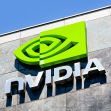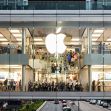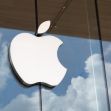Intellectual property is property. We all know this from the ads that used to tell us about how downloading a song from Napster is the moral equivalent of stealing a car. Regardless of how those particular ads impacted your internet habits, the spirit of the argument was clear: Many companies live and die by their intellectual property. Companies make billions by leveraging their patents, copyrights, trademarks and trade secrets. What defines an actionable piece of intellectual property is not always so clear-cut, however. Apple’s recent lawsuit alleging theft of trade secrets serves as an illustration of a relatively new and lesser-known area of intellectual property law.
In 2016, Congress passed the Defend Trade Secrets Act (DTSA). The DTSA was meant to provide a unified definition of what constitutes a trade secret and ensure that there was a federal cause of action for trade secret misappropriation. Trade secrets have historically been a nebulous concept because the term can incorporate such a wide range of items that constitute a company’s “secret sauce.” A trade secret can be a formula or algorithm, a program or code, a financial model, or even a customer list.
The DTSA offers a broad definition, covering “all forms and types of financial, business, scientific, technical, economic, or engineering information,” both tangible and intangible, and however stored. In order to qualify for protection under the DTSA, the trade secret must, indeed, be secret. The owner must have “taken reasonable measures to keep such information secret,” and the economic value of the secret must be derived from its very secrecy.
The DTSA gives trade secret owners the right to bring a civil claim for damages in retaliation for any form of misappropriation. Misappropriation may constitute using improper means to acquire the trade secret (i.e., corporate theft), or disclosing or using a trade secret that was unlawfully acquired.
The DTSA thus holds liable both the party that acquires and uses the trade secret as well as the party that improperly discloses the trade secret, including a person who acquired the information “under circumstances giving rise to a duty to maintain the secrecy of the trade secret or limit the use of the trade secret.” The latter portion applies to situations in which an employee bound by a non-disclosure or confidentiality agreement leaves one company and discloses or uses their former employer’s trade secrets at a rival company. Enter Apple.
Apple recently filed a lawsuit against a company called Rivos alleging breach of contract and violation of the DTSA. Rivos is a start-up that intends to market and sell its own semiconductors in competition with Apple. According to Apple’s complaint, Rivos poached a number of ex-Apple engineers and told them to steal confidential information on their way out. Specifically, Apple alleges these engineers were encouraged to copy confidential information about Apple’s system-on-chip (SoC) designs. These engineers allegedly copied information onto USB drives, backed-up their corporate devices onto personal hard drives, and sent information using AirDrop. Apple alleges the engineers tried to cover their tracks by improperly wiping their company devices. These acts, of course, violated Apple’s confidentiality agreements with the former employees.
If true, these allegations would appear to spell out a clear-cut case of trade secret misappropriation under the DTSA. Apple claims that it spent years and billions of dollars developing its proprietary SoC designs, including items like chip specs, technical analyses, and designs for current and as-yet-unreleased products. According to Apple, if Rivos is granted free reign with Apple’s trade secrets, the company could make a tidy profit off of Apple’s labor and undermine Apple’s profits in the meantime. Apple’s lawsuit targets Rivos and several former Apple employees.






